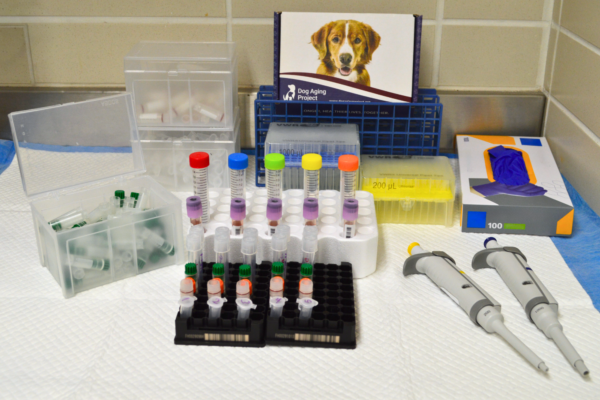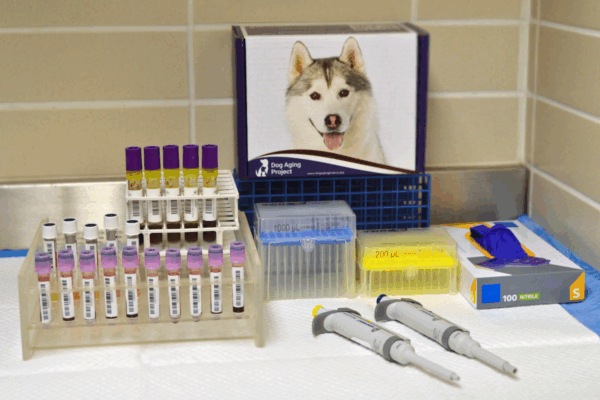Scientific Results

Scientific Results: Protein Catabolites as Blood-Based Biomarkers of Aging Physiology: Findings From the Dog Aging Project
Published on January 27, 2026The Dog Aging Project is working to understand how and why dogs age. By studying genetics, environment, and biology, researchers hope to learn what affects healthy aging in dogs. One area of interest is the identification of aging biomarkers, which are measurements that can be made across the life of a dog that reflect their aging.
Read More
Scientific Results: Demographic features, health status, and behavioral changes associated with cannabidiol use in the Dog Aging Project
Published on January 5, 2026Cannabidiol is a substance extracted from Cannabis sativa plants (i.e., cannabis and hemp) that may have valuable medical properties.
Read More
Scientific Results: Test of Rapamycin in Aging Dogs (TRIAD): study design and rationale for a prospective, parallel-group, double-masked, randomized, placebo-controlled, multicenter trial of rapamycin in healthy middle-aged dogs from the Dog Aging Project
Published on December 22, 2025This paper describes the TRIAD clinical trial, which is part of our ongoing work to understand healthy aging in dogs.
Read More
Scientific Results: Findings from the Dog Aging Project: home-prepared diets for companion dogs feature diverse ingredients, and few are nutritionally complete
Published on October 30, 2025This study explored what dog owners like to cook up for their furry friends at home. We were curious about the ingredients they choose and whether those meals provide the essential nutrients that keep our pups healthy and happy.
Read More
Scientific Results: Comparing owner reported and genetic breed identification reveals high concordance in a large cohort from the Dog Aging Project
Published on September 29, 2025Like people, dogs have many traits that make them unique individuals. They also have some traits and characteristics that they share with other dogs.
Read More
Scientific Results: Testing for heavy metals in drinking water collected from Dog Aging Project participants
Published on September 22, 2025Our team tested the drinking water of dogs who live in homes served by wells.
Read More
Scientific Results: Environmental exposures and health outcomes in dogs differ according to geographic region in the United States among Dog Aging Project participants
Published on August 6, 2025This research looked at how where a dog lives in the U.S. affects the kind of exposures it faces and the types of health problems it gets.
Read More
Scientific Results: Food motivation and owner feeding management practices are associated with overweight among Dog Aging Project participants.
Published on July 31, 2025This study looked at how food motivation and owner feeding practices were associated with overweight/obesity in dogs.
Read More
Scientific Results: Rationale and design of the Dog Aging Project precision cohort: a multi-omic resource for longitudinal research in geroscience
Published on July 30, 2025This paper introduces our Precision Cohort, which collects important biological information from dogs in our study group.
Read More
Scientific Results: The effects of resting time, centrifugation time, and technician training on plasma sample quantity and quality: Implications for the Dog Aging Project
Published on June 13, 2025Members of our Precision Cohort participate in an annual collection of routine samples like bloodwork (similar to an annual check-up), urine, feces, and hair collected by their primary care veterinarian.
Read More